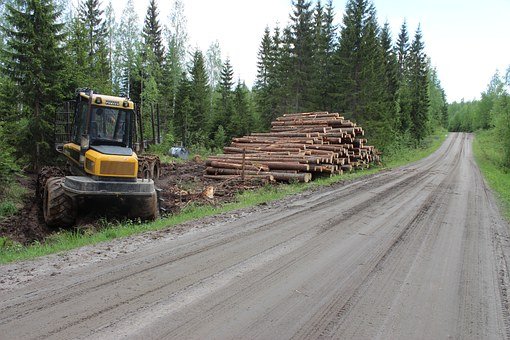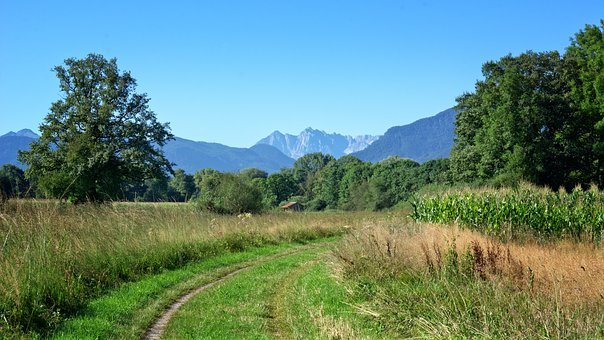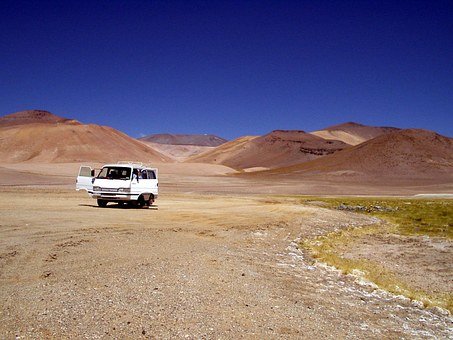
First things first, what is boondocking?
Freecampsites.net describes it this way:
“Boondocking is essentially camping without hookups. You may also hear it referred to as ‘dry camping’. Often, dry camping means staying in a campground without hookups, whereas, boondocking typically means staying in a completely undeveloped area. You may also hear people talk about ‘dispersed camping’, which is the official term often used by government agencies.”ps, safety concerns are the reason most people’s concerns for preferring controlled pay-campgrounds.
If you’re the paranoid type, boondocking may be the farthest thing from your mind. But if you’re torn between wanting to give boondocking a try and being scared for your safety, read on.
PUTTING YOUR FEARS TO REST
For most, it’s just dispelling their initial fears about their safety while alone in desolate areas. So how to do this?
Talk to others who have experience with boondocking.
Give boondocking a try by not wandering too far into remote locations.
Give some deep thought to your fears and what may be causing them.
I’m not saying there aren’t reasons and places where one should be cautious. We live in times that cause us to be cautious, but concerning boondocking safety, you need to let your own common sense rule.
A COMMON SENSE APPROACH TO BOONDOCKING
It is my belief that everything in life, even walking down a sidewalk and crossing a street involves a degree of risk. We decide daily what risks we are willing to take.
It’s been my experience that knowledge coupled with experience calms any fears.
From all the years I’ve been a boondocker, following are my common sense insights on safety when boondocking.
When boondocking down a washed out old logging road on public land, I am no more of a target for a robbery than would be a home on some remote country road. Statistically, I am much more likely to become a victim in my home than when boondocking.

Boondocking in an RV is much less of a target than a house would be. RV’ers don’t typically carry valuable items with them as they have at home, therefore, an RV is not as attractive from a thief’s perspective.
Boondockers don’t usually remain in one location for more than a day or two which is not an adequate time frame for a would-be thief to scout it out and learn the routine of the occupants.

When boondocking, I will always park my RV so I can drive straight out in case of need. I always leave my keys in or near the ignition so if anything out of the ordinary should occur, I can start up and leave the area immediately without having to get my RV turned around. Again, common sense rules.

Burglers are not the only boondocking safety concern. A medical emergency can happen anywhere at any time so insure your gas tank is topped off before heading out to remote locations. You may need to drive to a hospital in the middle of the night.
With all my years experience boondocking, I’ve found that camping enthusiasts are friendly and honest, even when camping in so-called secured campgrounds, but that doesn’t mean there aren’t thieves around or that one is immune from being robbed, however, most RV’ers will agree that when out and away from home, your fellow RV’ers are more likely to keep an eye on each other’s RV’s than they would their neighbors at home.
I always use common sense when seeking a place to stop, especially overnight. Trusting your “gut” as it were, is a good thing. If the area does not feel “right”, then I move on.
For me, the further I am from civilization and when I’m totally alone, the more safe I feel when camping.
In most boondocking situations, it’s common courtesy to leave a good amount of space, like several hundred yards between yourself and the nearest camper. This also has another benefit – less noise. Some boondockers like their amenities such as a generator. When I head out into the wilderness for peace and quiet, the last thing I want to hear is the noise of a generator running all night and day or loud music.

When boondocking, some apps I have found very useful are:
Campendium – Great for finding camping areas
iOverlander – Great for finding camping areas
Truckerpath – Great for finding truck stops, Interstate rest areas, etc. (Some truckstops welcome RV’ers overnight
Pilot Flying J – Find truck stops, fuel and restaurants
RV Parky – Find RV parks along your route
Road Trippers – For finding interesting things and things to do along your route
Gas Buddy – Find nearest and cheapest gas along your route
WAZE – One of my favorites for real time GPS, police reports, road and traffic conditions, etc along your route
And, my favorite is not an app, but a website:
www.freecampsites.net This is an excellent resource for finding free camping. Just type in a location you’re interested in and you’ll get a selection of sites.
In summary, always pay attention to your surroundings and don’t be paranoid, be cautious.
Happy boondocking
If you liked this article, please follow me. I’ll be bringing you more good quality content in the weeks to come.”
Until next time…


